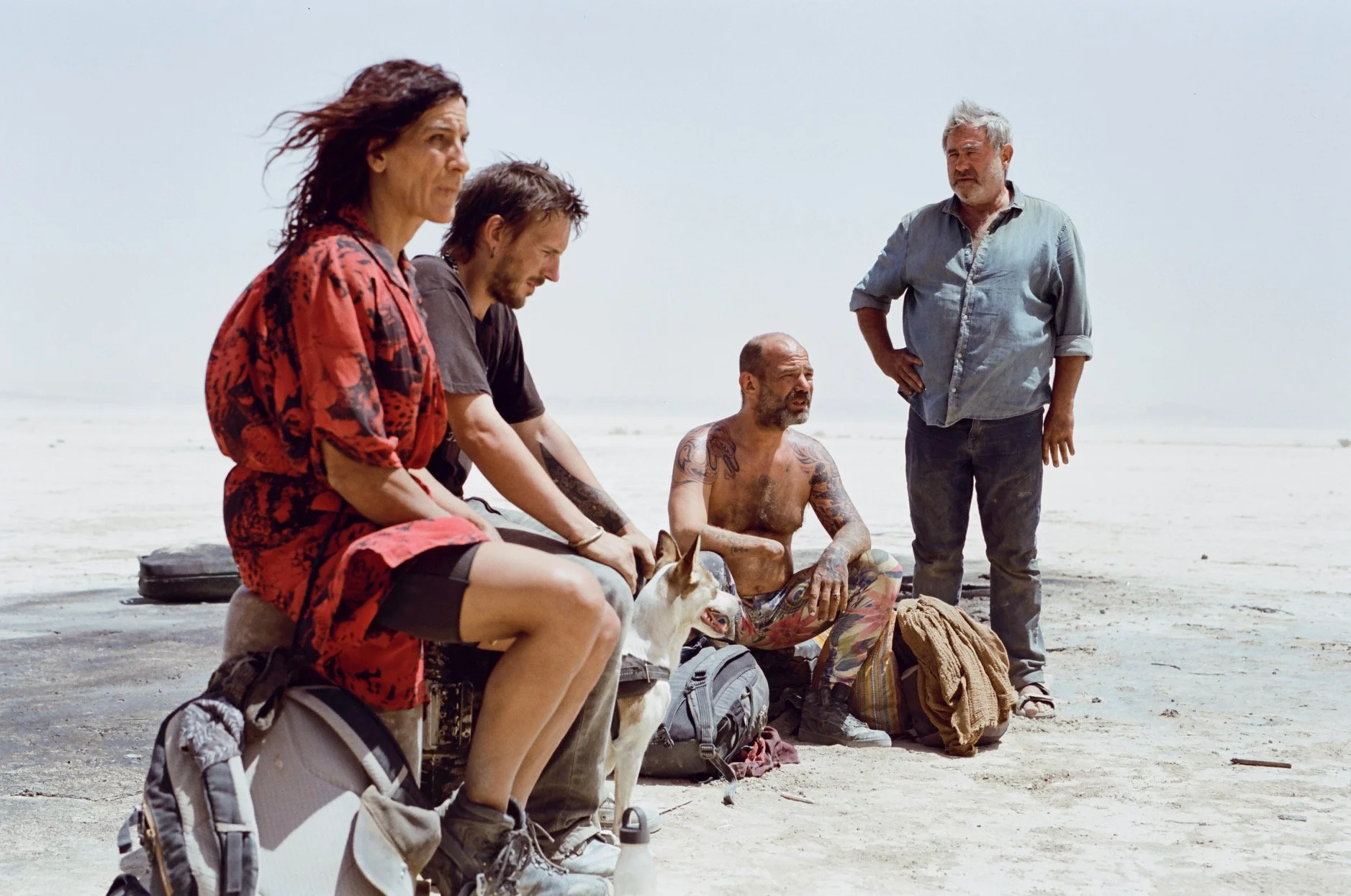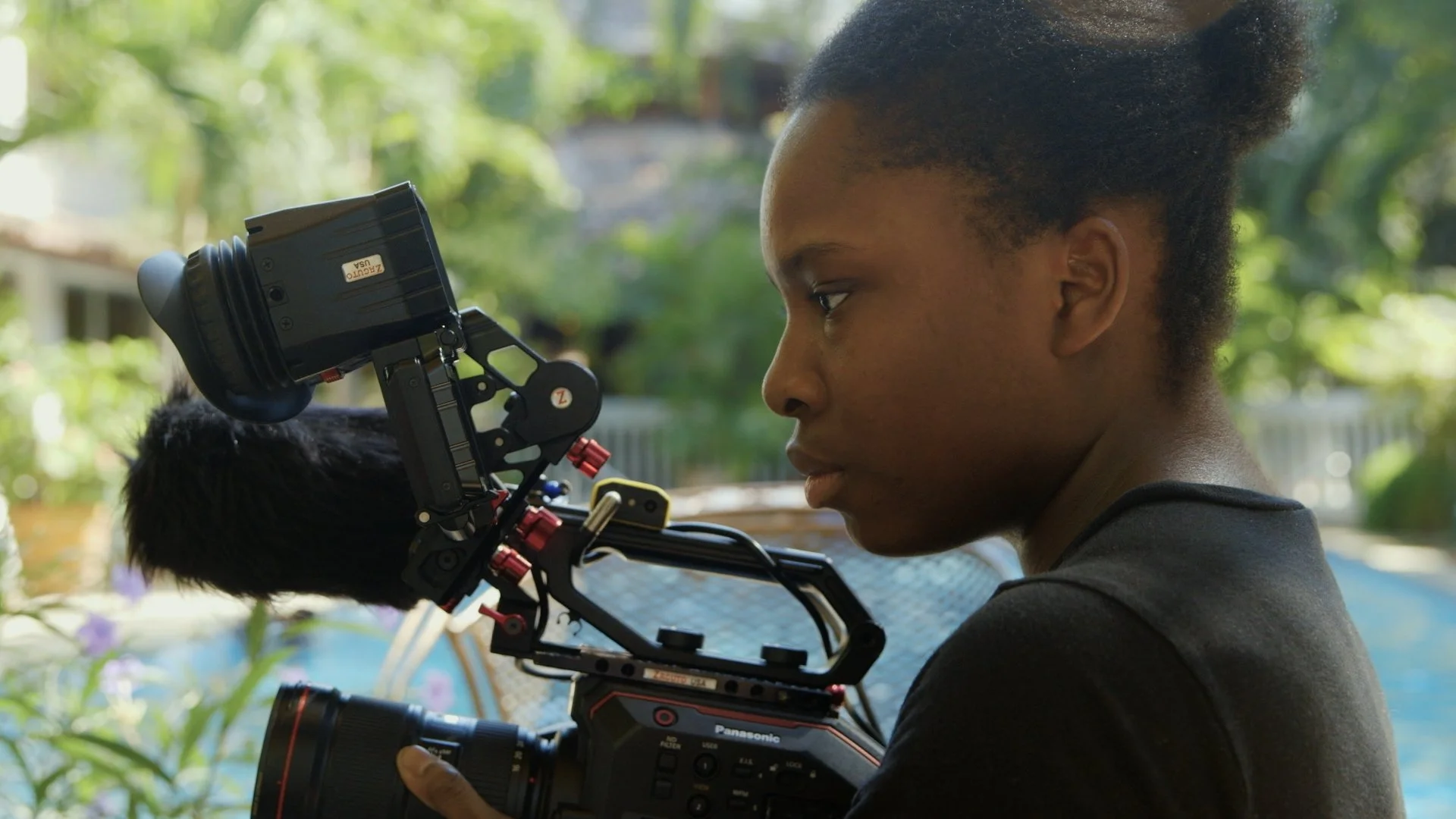Film reviews: From South Africa to the Philippines, dissidence and political truth-shaping at KDocsFF
The films Influence, Hong Kong Moments, and A Thousand Cuts wade intriguingly into the game of mis- and disinformation
Influence centres on the infamous Lord Tim Bell and his associates at Bell Pottinger, known for their controversial geopolitical spin-doctoring.
KDocsFF presents Influence, Hong Kong Moments, and A Thousand Cuts from March 12 to 21
IN A 1977 cover story for Rolling Stone that has since passed into legend, Carl Bernstein revealed that the CIA had secretly retained some 400 prominent members of US media to advance the Agency’s anti-communist and pro-American business and political interests. Beginning in the '50s, this widespread and illegal project of domestic infiltration—which included plenty of propaganda directed at the US citizenry—was called Operation Mockingbird.
Almost 50 years and a couple of info-tech revolutions later, Mockingbird sings louder than ever, but now it’s in harmony with a self-regulating corporate media that inhabits either the extreme right (Fox) or the less extreme right (MSNBC), and where ubiquitous “anonymous official sources” determine the narrow perspective of the news cycle. Public broadcasters in Canada and especially the UK fare no better, occupying a cynical centrist ground disguised as balance, where the left is faithfully and consistently silenced.
Social media has provided something of a harbour for dissident speech, but only inside a murky stew of bad faith actors doing what Mockingbird set out to achieve half a century ago. In the last five years, the independent online news outlet Bellingcat garnered a slew of awards for its mix of investigative and citizen journalism, representing to some observers the vanguard of the new free press. Others, including GrayZone journalist Aaron Mate, have pointed out that Bellingcat’s funding and consistently pro-NATO orientation suggest a more insidious and dishonest agenda.
Wading into this fuzzy world of mis-and-disinformation are three movies playing at this year’s KDocs Film Festival. Each is valuable in its own right, and each inadvertently exposes its role in the endless game of political truth-shaping. Made by Richard Poplak and Diana Neille, the tremendously entertaining Influence proposes an origin story for the modern alliance of politics and perception management with its look at the work of Bell Pottinger, a high-end British PR firm notorious for stoking violent unrest in South Africa prior to the end of Apartheid.
The magnetic centre of Influence is Lord Bell himself, the company’s charismatic and probably sociopathic founder whose blunt acumen as an ad-man was harnessed by Margaret Thatcher early in her leadership of the UK Conservative Party. Anyone around at the time remembers Bell’s admittedly brilliant campaign to get Thatcher elected with billboards crowing that “Labour Isn’t Working” in 1979. He’s interviewed extensively in Poplak and Neille’s film, never without a cigarette, apparently relishing the chance to spout off on villainous exploits with the likes of Pinochet or to express his eternal contempt for “the Left.” We’re almost disarmed (but not quite) by the man’s airy candour.
After receiving hundreds of millions of dollars in Pentagon contracts to spin the 2003 occupation of Iraq with fake terrorist videos—ultimately a failed campaign if you factor out the obscene profiteering—Bell Pottinger came to a sticky end in 2017 with another South African adventure, this time manufacturing yet more politically expedient racial tension in partnership with the corrupt regime of President Jacob Zuma. The resulting scandal finally killed this darkest of influencers, with Bell left to hang himself in a now famous and squirm-inducing BBC interrogation that more or less ended his life two years later, if you squint at it through Shakespearean goggles.
There’s an almost mystical quality to that public flogging, which finds Bell—after a glittering career running interference for the worst people in the world—utterly incapable of running interference for himself. Instead, interrupted twice during the broadcast by his own phone and increasingly agitated, he flails. If Influence had ended there, there’d be nothing to complain about. Unfortunately its last minutes are devoted to dire warnings about Russia’s advanced “information warfare.” Touted as if it’s some sort of Strangelovean mineshaft gap, it consumes the film in the very thing Influence seeks to expose: in this case the engineered hysteria of “Russiagate”, which achieved nothing besides obscuring the Trump administration’s actual crimes while plunging America’s liberal-centre, mindbogglingly, into a dangerous new variation on McCarthyism. Who does that benefit?
Pro-democracy in Hong Kong
Not unrelated is the editorial position taken, albeit subtly, in Hong Kong Moments. Made by the prominent Chinese documentarian Bing Zhou, the film scores high as a pulse-pounding immersion inside Hong Kong’s pro-democracy protests, while zooming in on a number of figures from all sides of the fraught action, among them an ambivalent taxi driver, a pro-democracy community officer, and a 28-year-old cop. Bing’s film beguiles with its emotional honesty in the face of collapsing certainties, as in the quiet moment when a staunchly pro-PRC restaurant owner reckons with the reality of escalating and lethal police violence.
But Hong Kong Moments also shows its hand whenever it focuses on a protest organizer, disguised for his safety and dramatically voice-modulated inside frames composed like the panels of a graphic novel. Another protagonist makes passing reference to covert US influence on the democracy movement, but it sinks and disappears immediately inside the adrenalized commotion whipped up by the filmmakers. As such, and allowing that someone had to say it, it’s hard to ignore that Bing’s French and German production partners have their bead on the Western viewer and would naturally align with Washington’s attitude to Xi Jinping’s mounting “democracy” problem. Here we’re confronted with the tightening embrace between access and propaganda.
The strongman and the journalist
In A Thousand Cuts, we really get to see how the sausage is made during a casual behind-the-scenes chat between Rodrigo Duterte, one year into his presidency, and Rappler journalist and CEO Maria Ressa. As they prepare for an on-camera interview, the Filipino strongman asks if Ressa would have predicted his election success. Yes, she assures him, she did, because Rappler monitored the social media. “Ah,” he says, thoughtfully. “It’s a powerful thing.” This is a bracingly human moment from the man, and weird in its innocence. It’s not too long before “Dutarte Harry” is levelling unambiguous death threats at journalists, Ressa in particular.
Directed by Ramona S. Diaz, A Thousand Cuts observes Ressa and her Rappler colleagues as they try to cover Duterte’s homicidal “War on Drugs” in the face of rising government intolerance to a free press and an approaching senate election. That’s the polite description of what we see, which is a country sinking into mad-dog fascism. It’s a crowded race, but of all the vicious demagogues having their day right now, Duterte is the most openly vile. “I told the Filipino people to avoid me,” he reminds Ressa in an earlier interview. “It’s going to be bloody.”
Bloody, yes. Viciously prejudiced, of course. In reality, the War on Drugs is an excuse to slaughter the poor. Duterte is a self-confessed murderer, he jokes about rape, and he boasts to an enthralled stadium about his erect cock. The bizarre tendency for fascists to play the buffoon takes full flight in the shape of his lunatic corrections Czar, Bato Dela Rosa, a bulletheaded clown who sings at his political rallies after promising a reign of terror in the streets. And the mobilization of the entertainment industry—to which Western democracies would like to think they’re immune—is seen in the figure of pop artist/model Mocha Uson, a loyalist appointed to political office by her admiring president.
Having tipped him off to Twitter’s mojo, Ressa and her colleagues eventually uncover the network of bots deployed by the Duterte regime to smear and threaten the Rappler crew, while also generating the heat to have Ressa arrested on trumped-up suspicion of subversive activities against the state. We also watch as this brave journalist is celebrated in New York by Mr. and Mrs. George Clooney at an event hosted by TIME Magazine. As she leaves, Ressa exchanges emails with Amal, who’s all poise, statuesque beauty, and creepily flat affect.
In Poplar and Neille’s Influence, we’re reminded that Bell Pottinger conjured a fake anti-capitalist movement in South Africa to draw focus away from the oligarchical Gupta family’s alliance with the Zuma government. Playing one side against a controlled opposition is another well-worn trick of the trade, as is herding dissent into a safe space to redirect or drain its energy. The left is perpetually hobbled by these tactics. In this light, it’s a little disheartening to see Maria Ressa suckered into the dubious world of the mega-rich Hollywood liberal elite. And it’s worth remembering that the CIA’s most valued partners, revealed by Bernstein all those years ago, were the New York Times, CBS, and—uh oh—Time Inc.













